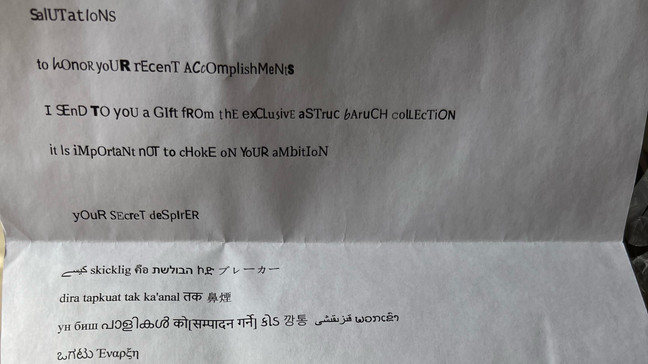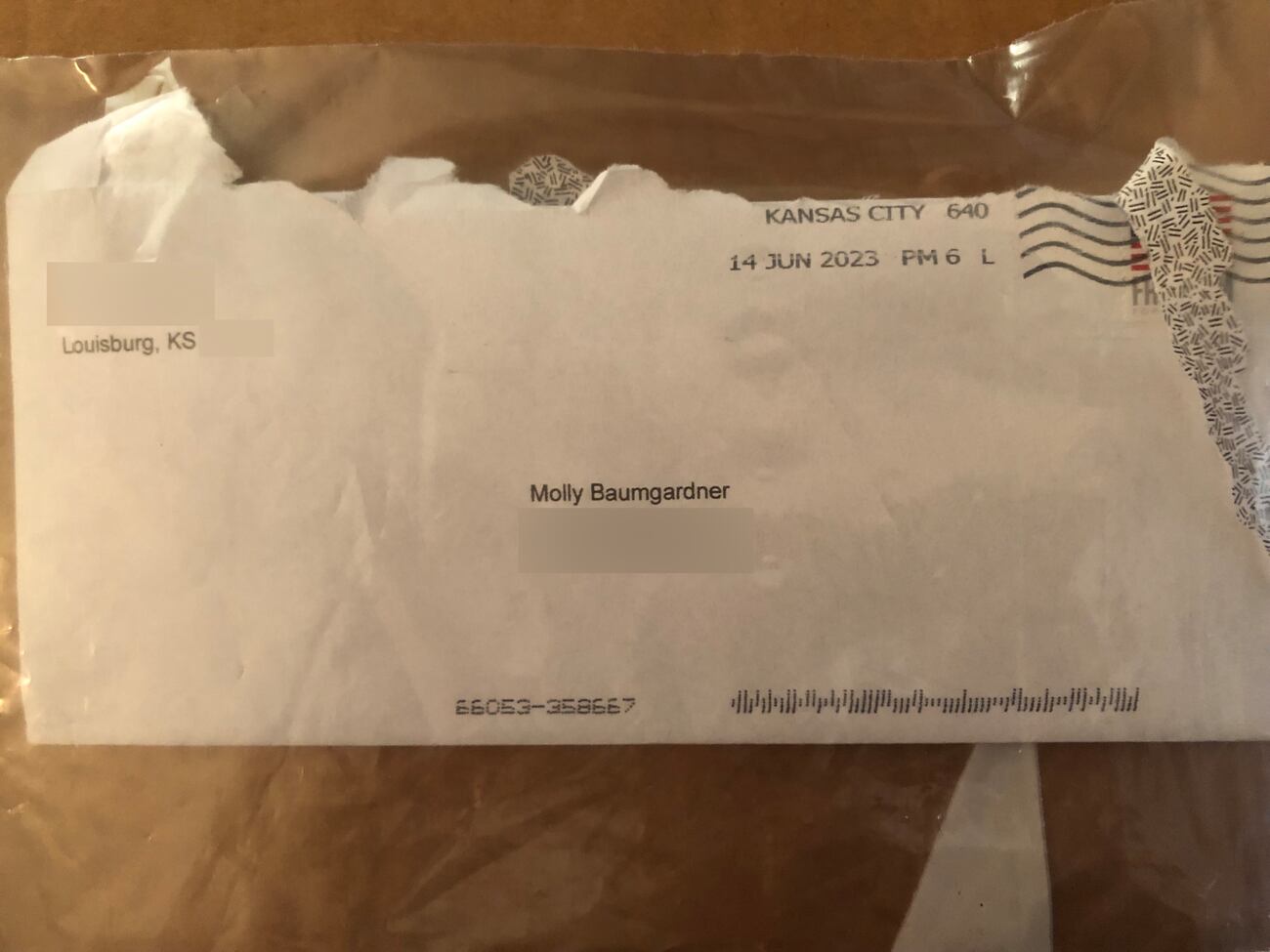TOPEKA – Last summer’s harmless “powder attack” on Republicans in numerous states remains unsolved, and since no one was injured in the incident the investigation is unlikely to be pursued.
Kansas City’s FBI Field Office issued a single sentence response to an inquiry by The Kansas Informer for a followup last week, but previous reporting on “fake anthrax” mailings leads to the probability the incident was tied to the one-year anniversary of the overturn of Roe v. Wade.
More than 12 months after the 2023 incident, Kansas City’s FBI had little to say.

“I don’t have any additional information that I’m at liberty to provide at this time,” said Dixon Land, the office’s public information officer.
More than 100 letters were sent to state legislators and public officials – nearly all of them Republicans – across Kansas and two other states in mid June of 2023. Most included fake local return addresses. Legislators’ home addresses are often included on their political filing information that is public record on most state election office websites.
Governor Kelly and state legislators appropriated $170,000 in emergency funds to cover costs of dispatching hazmat teams to each of the letter locations reported in the state. The governor never condemned the action, dubbed an act of terror by House Speaker Dan Hawkins, saying she would make a statement when law enforcement finished its investigation. No statement has followed.
Tests on the white powder included in the envelopes by law enforcement proved it to be no threat, but the tactic is a traditional one among those seeking to harass and intimidate their targets.

Fake bioterrorism attacks became popular after an actual Anthrax mailing just after 9/11, when Anthrax spores killed five people in the United States and sickened 17 others. The FBI at the time identified Bruce Ivins, a microbiologist and research scientist at the U.S. Army Medical Research Institute of Infectious Diseases (UASMRIID), who officials believed acted alone in the attack after coming to believe his supervisors planned to end his anthrax research and move him to work on other pathogens. The FBI said the anthrax spores in the letters were genetically connected to unique anthrax spores that Ivins had developed and maintained in his laboratory at USAMRIID. Ivins killed himself in 2008 and was never formally charged with the crime, but in 2011 a panel of scientific experts assembled by the National Academy of Sciences, at the request of the FBI, independently evaluated the Bureau’s genetic analysis of the anthrax spores and determined the evidence put forth by FBI investigators was insufficient to prove that Ivins was the culprit – that his work facilities at USAMRIID did not contain the equipment to render powdered anthrax from liquid forms at the lab.
The FBI told Slate Magazine in 2012 it investigates some 800 powder letter incidents a year, usually related to disgruntled individuals. Within a year of 2001 attack there were 50,000 individual incidents. Outside of personal vendettas like divorces or job-related drama, the feds say politics is often a motive.

“Every year around tax filing time, people annoyed with the tax system will send their returns back with white powder and hate mail to the IRS,” Michael Varacelli, an FBI special agent, told Slate in the 2012 interview. The stimulus package in 2009 brought a white-powder mailings to lawmakers and government officials. The health care debate in 2010 generated another big wave.
The June 2023 incidents targeting Republicans and conservatives in Kansas, Tennessee and Montana – and former President Donald Trump – came near the one-year anniversary of the U.S. Supreme Court’s overturning of the Roe v. Wade abortion decision, which forced the federal government to step out of abortion legislation and remanded those legal decisions to the individual states. That move by the court only came after Trump appointed three conservative justices to the high court during his term.
The ruling inflamed the American political left, and preceded by only months the failure of a Constitutional Amendment vote in Kansas that would have specified the state’s founding document contained no implicit right held by a woman to kill her fetus.
Kansas Bureau of Investigation Director Tony Mavity said at the time that though the powder was inert, it was still a danger to the public because it directed law enforcement officials away from real investigations. He said the KBI spent four full days working the investigation last year before it was turned over to the FBI.
Dane Hicks is a graduate of the University of Missouri School of Journalism and the United States Marine Corps Officer Candidate School at Quantico, VA. He is the author of novels "The Skinning Tree" and "A Whisper For Help." As publisher of the Anderson County Review in Garnett, KS., he is a recipient of the Kansas Press Association's Boyd Community Service Award as well as more than 60 awards for excellence in news, editorial and photography.





